Peculiar charophyte alga in
the Rhynie chert
Charophyte algae are a common but enigmatic component of the Lower
Devonian vegetation preserved in the Rhynie chert. They have been
thought to largely belong to only one species named Palaeonitella,
with gyrogonites for propagation like with any known stonewort-like
charophyte
alga. While gyrogonites are readily found from the Devonian to the
present so that they serve as index fossils for stratigraphy, those of
Palaeonitella
had been elusive for decades. Their assumed discovery had been
announced
by the authors [1] with due caution because they had been found broken
and detached from the alga so that their affiliation is not quite
certain.
Recent own finds suggest that some or even all stonewort-like
charophyte alga
in the Rhynie chert may represent a highly peculiar charophyte
alga distinguished by the absence of gyrogonites. Arguments in favour
of this idea have been
offered in Rhynie Chert
News
73,
89,
90, 138.
The images shown there can be helpful in the interpretation of the
often confusing images of poorly preserved or
unfavourably cut algae.
The present contribution is meant to complement the previous ones by
providing more images, thus promoting the idea that this alga is a
relic from bygone times when there were no gyrogonites.
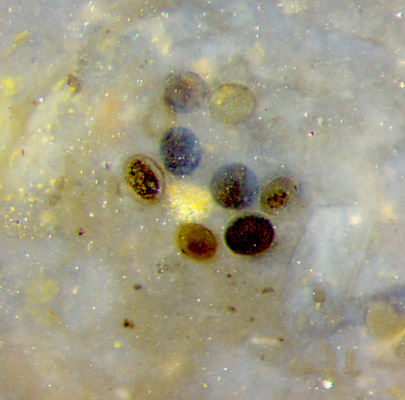
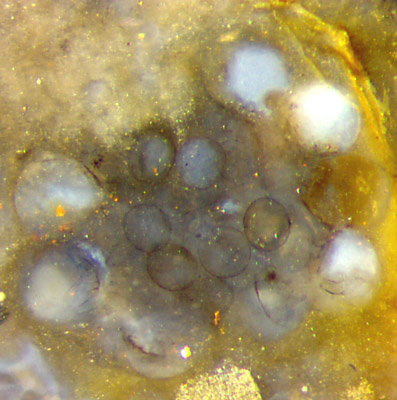
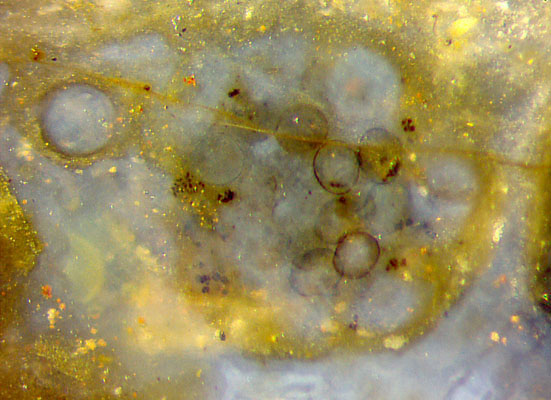
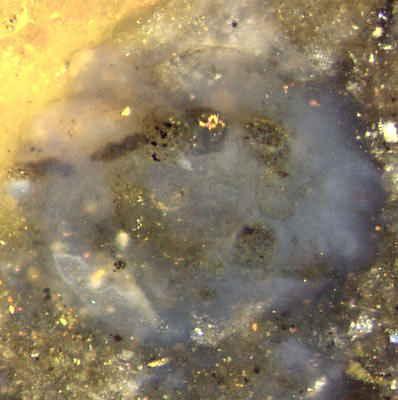
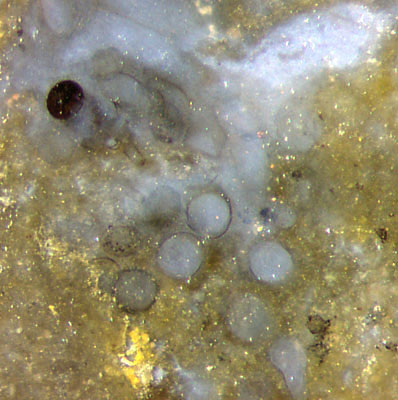
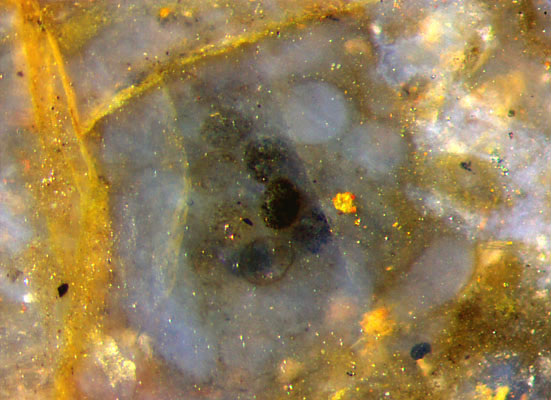
Figs.1-6: Stonewort-like
charophyte alga, 6 specimens, each with cross-section
of uppermost whorl with multiple smooth-walled oogonia, top view.
Height of images 1mm.
On
this alga, oogonia are grown at the uppermost whorl only, where they
form a kind of "alga flower", not often as conspicuous as in Rhynie Chert
News
73,
there Fig.1. Often the alga parts are arranged less orderly,
owing to partial decay or inclined cut. Among the above images, only
Fig.2 comes close
to a "flower". It is not known why some oogonia have got a
dark
fill while others are transparent.
Even if poorly preserved, capsules
and branches can be told apart by their diameters: 0.1 ... 0.13mm for
capules, 0.15 ... 0.2mm for branches. The smaller branches in Fig.5 do
not seem to belong to the decayed flower. Fig.5
is remarkable for the central column below right of the dark oogonium,
with a few stalks of the shed oogonia still there. Two more oogonia
with very pale stalks are faintly seen below.
The antheridia in this sample are like those in Rhynie Chert
News
93.
All
pictures have been taken from the sample Rh9/93 found by S. Weiss
in 2011. The "peculiar alga" had been discovered in 2015.
H.-J. Weiss
2019
[1] R.
Kelman, M. Feist, N.H. Trewin, H. Hass: Charophyte algae
from the Rhynie chert.
Trans. Roy. Soc. Edinburgh 94
Part 4 (2004 for 2003), 445-455.
 |
 |
139 |









